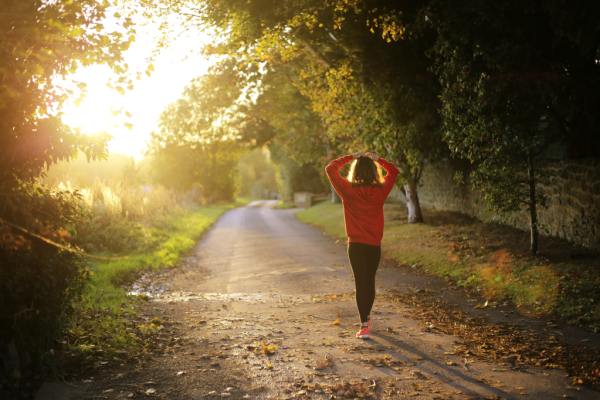Stuck Inside – Ways To Beat Boredom and Maintain Your Mental Health

It’s like something from an apocalyptic movie; a pandemic has been announced, countries are in lockdown, people are isolating themselves for months, and businesses are struggling.
In times like these, it’s easy to panic, and it’s easy to lose sight of the good things around you. And if you’re self-isolating for a long period, loneliness and boredom can set in quickly.
Humans are social creatures and it’s vital that we find ways to connect with others and maintain our mental health, not just during times of challenge, but as a part of everyday life.
Here are some things you can do to beat boredom and look after your mental health when you’re stuck inside.
Feel-Good Productivity
Deep clean your kitchen cupboards
You’ve probably been meaning to do this for months, but work and other responsibilities meant you could never get round to it. Now is the perfect time to empty those cupboards and give them a thorough cleaning. For more cathartic impact, imagine that all the grime you’re removing are also layers of negative thoughts being scrubbed from your mind.
Deep clean/declutter cutlery drawers
Remove all your cutlery, declutter what you don’t need, and give the drawers a good clean. It’s so satisfying to get your utensils out of a clean and organised drawer, and makes meal times much easier.
Deep clean/declutter the bathroom
Bathrooms accumulate mould and bacteria quickly. It’s also amazing how many supplies end up multiplying in bathroom storage. Get rid of out-of-date toiletries, makeup, and medications, then remove everything else and make the surfaces shine. You’ll be glad you did.
Declutter Rooms In Your House
Start a mission to declutter your home, starting off with one room and gradually making your way round to the others. When you remove what you don’t need and keep only the things you love, you create space and clarity in your home and your life. It also becomes much easier and faster to clean, which frees up time for other activities or rest.
Decluttering is so incredibly freeing on the heart and mind it can become addictive.

Wash/clean your curtains or blinds
I don’t know about you, but I rarely think about the blinds in my house when I’m doing a clean and recently I couldn’t work out why my rooms still had a dusty smell to them. The other day, I thought to check the blinds, and they were covered in a thick layer of dust. Giving your curtains a wash or your blinds a good wipe-down will help to freshen the air in a room.
Wash your bedding
Bedding needs changing once a fortnight, or even more frequently if you’re a heavy sweater. Dust mites also build up inside mattresses, so it’s a good idea to give the mattress a hoover while you’re at it with a dust mite vacuum.
Declutter/tidy the shed or garage
Sheds and garages are clutter hotspots. They accumulate multiples of tools or things get stowed away in them which we believe we might need ‘one day’. If you have a nice sunny day, why not set aside some time to clear these spaces out?
Fix the thing you never got round to
You know that broken toy you promised your kid you’d fix two months ago? The shelf that’s been wonky for the past year? Now’s a great time to finally get round to fixing it. Once it’s done, it’s off your to-do list and your family or partner can stop nagging you to do it.
Self Improvement & Mental Health

Take a course/learn a new skill
Always wanted to become an awesome cook, but never had the time to learn? Thought about learning how to write a book or start a blog? There’s no time better than the present.
There’s no shortage of both free and paid courses online to learn anything your heart desires. Some sites I recommend are Udemy, Skillshare, Open university, and Youtube. And there’s an ocean of excellent, insightful books out there for your chosen topic.
So, what’re you waiting for?
Go for a walk or run around your neighbourhood
Walking or running is a fantastic way to boost your mental wellbeing and should be a part of your everyday routine if you can. It’s also a great way to get your dose of vitamin D on a sunny day. Currently, the lack of cars and human activity in many areas has made for cleaner, fresher air, so there’s no better time to get some fresh air.
Beautify your garden (if you have one)
Gardening can also have a positive effect on your mental wellbeing. Not only is it a mindful activity, it can keep you fit. And there’s nothing like the satisfaction of some beautiful green space to clear your mind after a stressful day.
Journal
Journaling is a fantastic way of getting your thoughts down on paper (physical or digital). It can relieve your mind of worries that have been building up on you, lead you to solutions to your problems, or even help you build a writing habit.
You don’t have to be perfect; you don’t have to be able to write well; you don’t have to please anyone. You can be as messy, as creative, or as neat as you like. There are no rules.
When you go out for or order a shop, buy some flowers or plants to cheer the place up
It might sound small, but buying some flowers or some nice house plants can really help to freshen up a room and make it feel more cheerful. Believe it or not, houseplants are known for being beneficial to your health and productivity.

Practise gratitude
This might feel almost impossible when the world around you seems to be going to Hell, but I assure you, if you set aside the time and put some thought into it, you’ll come up with at least a handful of things in your life to be grateful for. Practising gratitude is great for boosting mental wellbeing and for adopting a positive mindset.
If you really struggle, there are some lovely gratitude journals out there which give you some gentle prompts and beautiful pages to look back on.
Colouring
Before you cast this aside as childish, hear me out. Research has shown that adult colouring can help to reduce stress and anxiety. It’s a peaceful, mindful activity and there are hundreds of beautiful or humorous adult colouring books to choose from. It doesn’t matter how good you are because there’s nobody judging you. It’s all about you and your relaxation.
I personally love Secret Garden by Johanna Basford.
Play some uplifting/upbeat music
Music can change or enhance our moods, so if you’re on a bit of a downer, try putting on some happy, upbeat music (or whatever chills you out). Music has also been proven to reduce pain in some chronically ill patients. I have been enjoying sitting in my sunny garden with the living room door open, listening to the radio, and have found it massively relaxing.

Play board/card games
A few weeks ago I bought two classic board games from my childhood: Ludo and Snakes & Ladders. Despite all the screens and other distractions, they’ve been a surprising hit and are something the whole family can enjoy. When the board games are out, boredom flies out the window, people’s cheeky and competitive sides come out, and screens are forgotten.
Recently, I’ve discovered Solitaire Klondike and have become somewhat addicted (no, I really hadn’t played this before).
Don’t underestimate board games or card games for some classic family fun.
Play videogames
I’ve always been a gamer, but even if you don’t consider yourself one, or have never picked up a controller in your life, there are thousands of games out there now to appeal to all ages and preferences.
The Nintendo Switch is a https://www.nintendo.com/games/switch/good choice for access to a massive library of games, as is the Nintendo 3DS. You can’t go wrong with either and there’s bound to be something you like whether that’s puzzles, point & click, party games, platformers, or action-shooters.
Multiplayer videogames are also a great way to stay in touch with others, make new friends online, or have fun with the family.
Help someone in need
For the ultimate pick-me-up, if you’re not sick you can always help somebody in need. With panic buyers emptying store shelves, and the elderly and vulnerable unable to get supplies, there are multiple ways you can help.
You can deliver shopping to their doorstep, leave a kind note, or drop off some flowers. Even making a few phone calls to some lonely people would be a huge help with the current situation.
Here are some links to just a few of the acts of kindness that have come out of the Coronavirus pandemic.
https://edition.cnn.com/2020/03/26/europe/kindness-coronavirus-strangers-helping-gbr-scli/index.html

What NOT to Do
As important as it is to stay updated, there are some things you shouldn’t be doing, that have the potential to increase your anxiety and feelings of hopelessness.
Don’t keep checking the news
The news updates to the minute and it’s tempting to keep refreshing it or checking back to see new updates of what’s happening. But as useful as the news can be, it can also be a huge trigger for anxiety and worry.
Every time there’s a new death, there’s a new headline. Do you need to know about every single death and crime? Keep in mind, many articles are written in a way to grab your attention and make you react with a panicked curiosity. These kinds of articles are often referred to as clickbait.
Set times for when you will check the news. After all, why worry about the things you can’t control?
Don’t check the news/social media first thing in the morning or last thing at night
How you start your day affects how the rest of your day will feel or go. If you start the morning reading depressing, worrying news, those will play on your mind for the rest of the day and keep you checking on events.
Similarly, if you start by scrolling through social media, that can have the same anxiety-inducing effect as constantly checking the news, especially as people are currently voicing their constant anger and worry.
Checking either late at night could keep you scrolling well into the time when you should be relaxing or catching a good night’s sleep.
Not only can the blue light from devices keep you awake, the anxiety from the news or from other people’s feeds can make you too anxious to sleep, and cause nightmares. And if you aren’t getting decent sleep, you’re going to feel consistently crappy.
Don’t believe everything you see on your newsfeed
Along with the coronavirus came the viral wave of fake news sweeping the internet. Companies are trying to slow the tide of fake articles, but there’s only so much they can do. The best thing you can do is to do your research.
Don’t immediately believe what you read online unless it’s from a well-trusted news source or website (in the UK mine ours is BBC News, Sky News, and the NHS website). There’s also the World Health Organisation who keep their website updated with the latest Coronavirus information.
But how can you know if what you’re reading is fake? First, check the source. Is it a familiar website? Has it got a weird-looking address?
A lot of shared fake news starts off with someone who knows someone else, who’s related to someone important, who said or saw something that nobody else knows. A quick Google search should show you if it’s fake or not.
It’s better to ignore ‘news’ like this, as it’s the equivalent of a game of Chinese Whispers – one which starts off with a lie to begin with.
Remember, if it’s not on any of your main trusted news websites, it’s likely not true.
Don’t worry about what you can’t control e.g other people’s behaviour.
In the end, no matter what’s going on outside, you can’t control it all. So focus, instead, on what you CAN control: your thoughts, your reactions, your words and actions.
Try not to succumb to vices such as excess drinking which can make anxiety or feelings of depression worse.
In many supermarkets, shelves are being stripped not just of food and other essentials, but of beer and wine. While there’s nothing wrong with having a drink now and then, drinking to excess will eventually cause a slew of both physical and mental health problems including anxiety, depression, weight gain and liver damage.
I hope these ideas have been useful to you, and remember: stay calm, stay healthy, be mindful of others, and follow the safety rules in your area.




